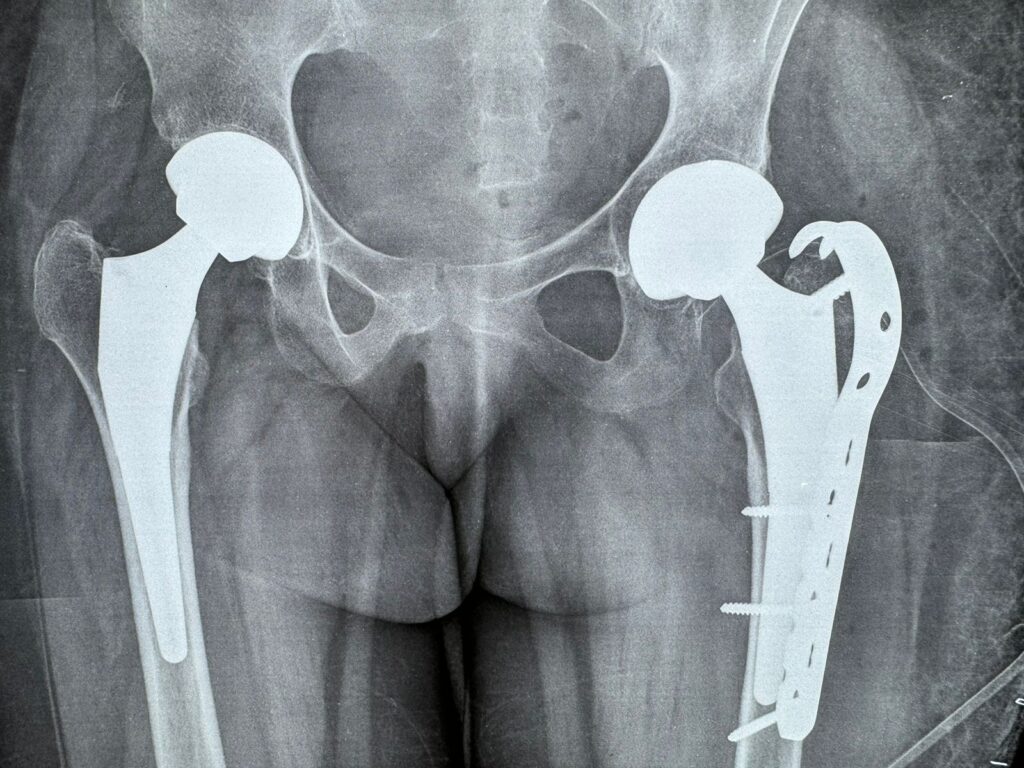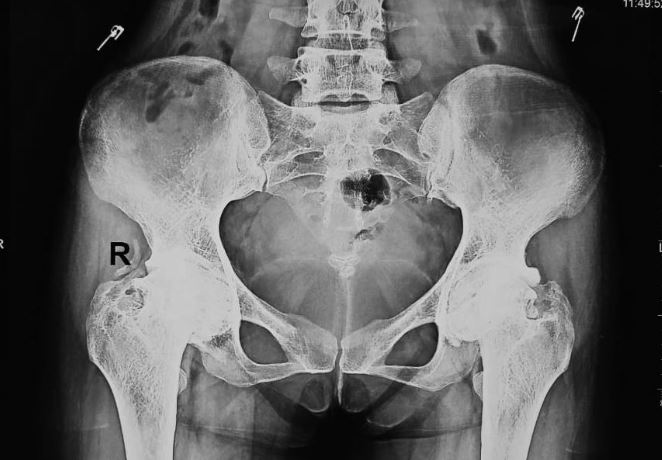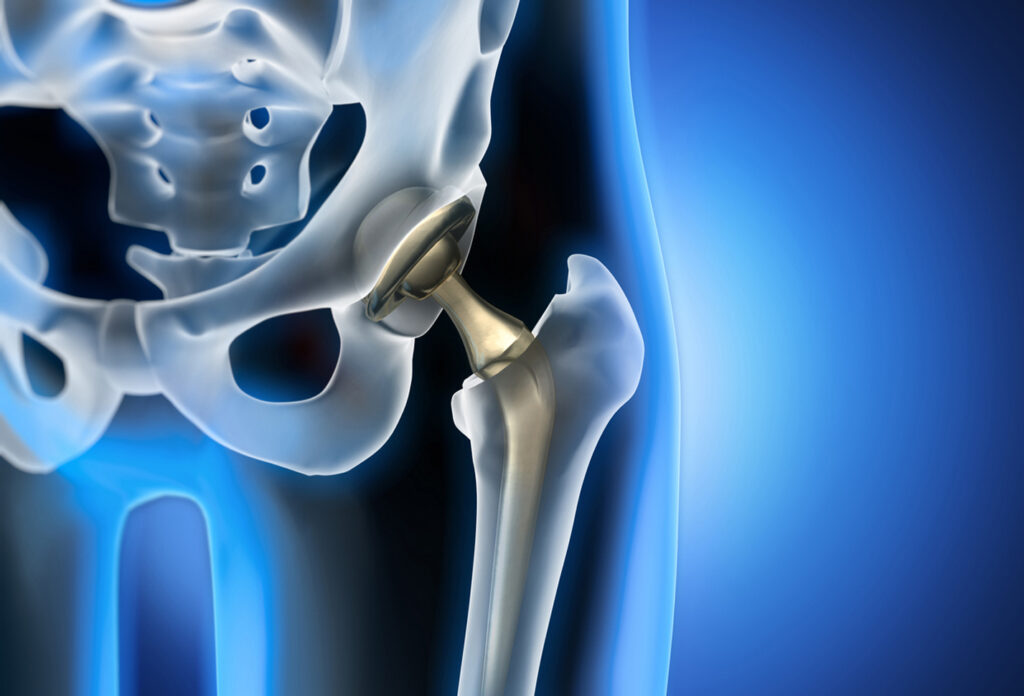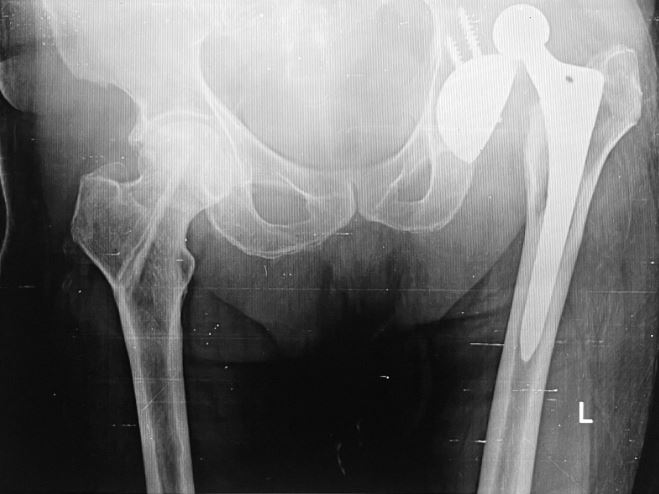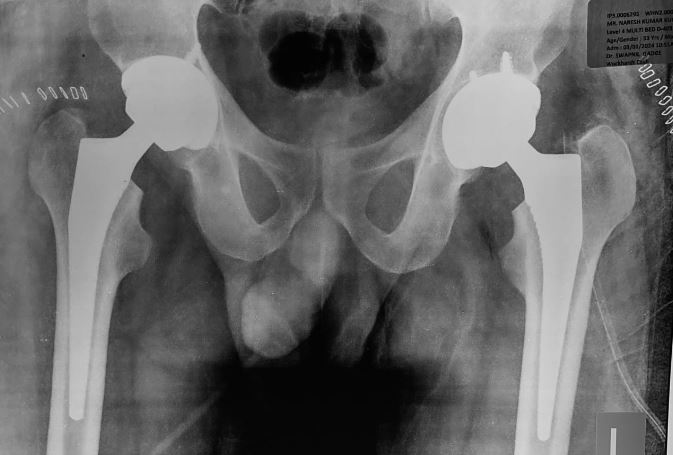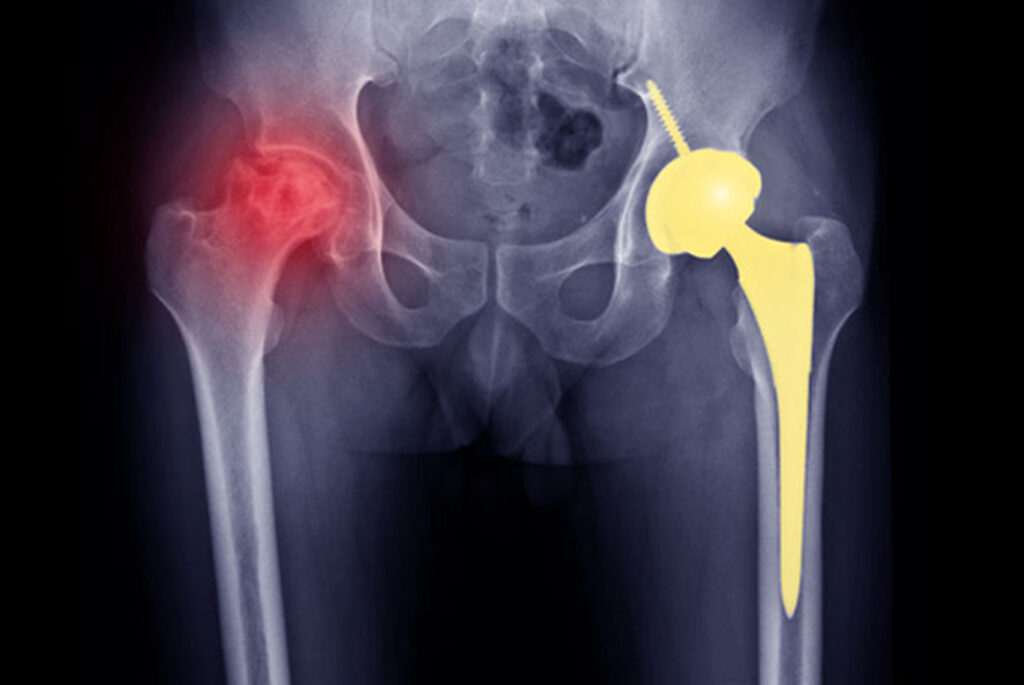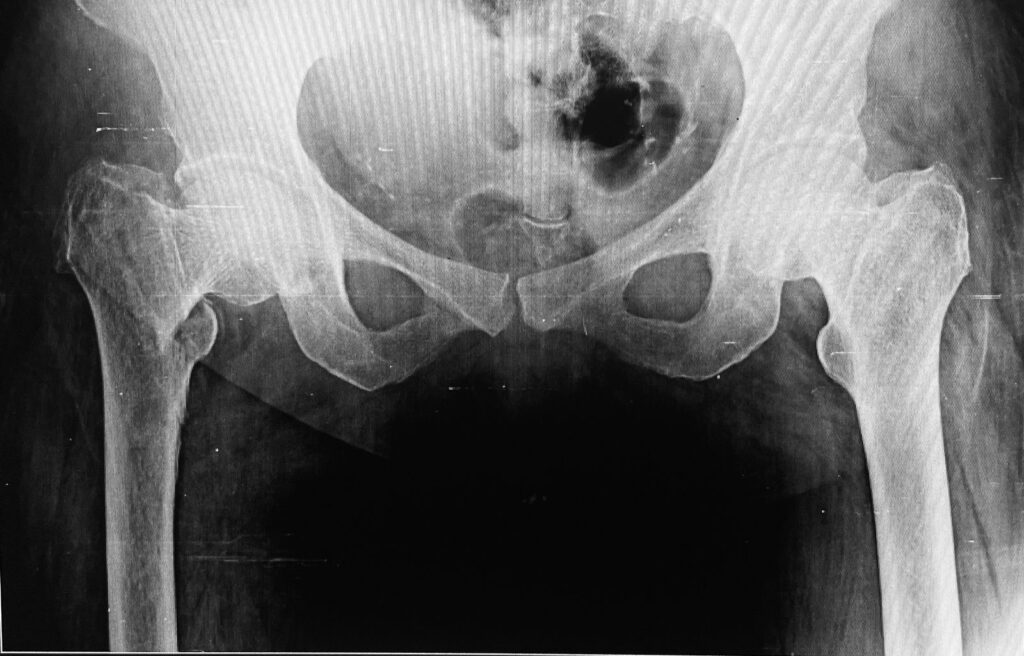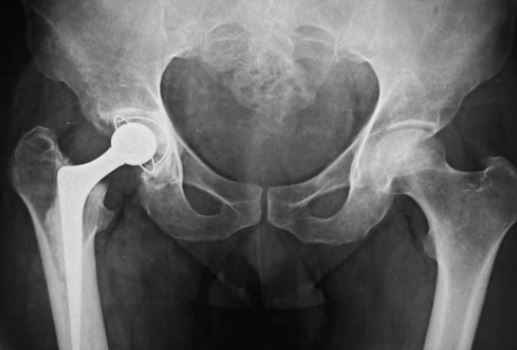
Dr. Swapnil Gadge
Fellowship Advanced Joint Replacement & Revision Joint Replacement (UK)
Dr. Swapnil Gadge is a leading orthopedic doctor in Nagpur, specializing in Revision Joint Replacement and Advanced Joint Replacement Surgeries. He received training at NHS, Scotland, UK, and further expertise in Pelvi Acetabular Surgeries in Mumbai. Previously, he served as a Consultant at JNMC, Sawangi, Wardha, and IGGMC, Nagpur.
Best Hospital For
Total Hip Replacement Surgery in Nagpur
Welcome to Gadge Hospital, a premier destination for Total Hip Replacement Surgery in Nagpur. Our dedicated team of the expert Orthopedic Doctors ensures that every patient receives personalized care and the most advanced treatments for hip-related conditions. Dr. Swapnil Gadge, a highly experienced Orthopedic Surgeon in Nagpur, specializes in various cases of total hip replacement, including Bilateral Total Hip Replacement, Hip Dislocation in the Elderly, Hip Fractures in Elderly Women, Avascular Necrosis of the Hip Joint, Alcohol-Induced Avascular Necrosis, Tubercular Hip Arthritis, Complex Hip Revision Surgery and more.
Total hip replacement is a surgical procedure designed to alleviate severe hip pain and stiffness caused by hip arthritis, enhancing overall function. During this procedure, damaged portions of the hip joint are replaced with artificial implants.
Implants Used The implants utilized in hip replacement surgery consist of three crucial components:
The Stem: Crafted from metal, typically titanium or cobalt-chrome, it is inserted into the thigh bone for stability.
The Ball: Usually made of polished metal or ceramic, it securely rests on top of the stem.
The Socket: This component features a plastic liner combined with a cobalt-chrome or titanium backing.
Longevity of Hip Implants: Hip implants are designed to endure for approximately 13 to 15 years. Beyond this timeframe, patients may require a follow-up surgical procedure known as Hip revision surgery.
Reasons for Hip Replacement Surgery
Total Hip Replacement Surgery is most commonly performed on individuals aged 50 to 80 years old, often to address arthritis that has affected the hip joint.
Arthritis damages the cartilage, which acts as a cushion between bones, and when this cartilage is compromised, it results in bones rubbing against each other, leading to significant joint pain
Hip replacement surgery is typically used to treat
three main types of arthritis
Total Hip replacement might be recommended in situations where
- You continue to experience pain, even when taking medication.
- Your hip pain gets worse when you walk.
- You find it challenging to climb stairs.
- You have difficulty standing up from a seated position.
Types of Hip Surgery
There are three main types of hip replacement surgeries, each suited for different situations
Total hip replacement, also known as total hip arthroplasty, is a common and effective procedure for alleviating hip pain, improving mobility, and restoring normal activities. In this surgery, the damaged hip bone and cartilage are removed and replaced with artificial components.
The damaged femoral head is replaced with a metal stem inserted into the femoral Canal and a metal or ceramic ball is attached to the upper part of the stem.
Damaged Cup is resurfaced and Reshaped into hemispherical shape and artificial component is attached. Two primary surgical approaches are used for total hip replacement: the more common posterior approach and the anterior approach.
Partial hip replacement, also called hemiarthroplasty, involves replacing only one side of the hip joint, specifically the femoral head, leaving the original hip socket (acetabulum) intact.
This procedure is typically used for cases of traumatic hip injury, such as fractures,and early stage of degenerative arthritis without acetabular changes
Hip resurfacing is primarily performed on younger, active patients with advanced hip joint problems.
Unlike conventional hip replacement, hip resurfacing preserves more of the proximal femur and uses femoral components with larger heads and smaller stems for improved cup stability.It is an option for individuals with end-stage hip joint pathology.
These surgeries aim to relieve pain, enhance hip function, and restore patients’ ability to engage in regular activities, with the specific choice depending on the patient’s condition and needs.
Diagnosis Before Hip Replacement Surgery
Diagnosis is based on symptoms like pain, limited mobility, and daily life difficulties. Special tests like X-rays, CT scans, and MRI are used to assess the extent of damage. Hip Replacement Surgery Procedures:
Two methods: Traditional and Minimally-Invasive.
Anesthesia, incision, muscle dissection, removal of damaged joint, attachment of artificial joint, preparation of hipbone surface, reattachment of muscles, and closure.
Smaller incisions, same procedure benefits including reduced blood loss, less pain, shorter hospital stay, and faster healing.
Risks Associated with Total Hip Replacement Surgery
Potential risks include bleeding, infection, blood clots, nerve injury, fracture, and dislocation.
Recovery After Hip Replacement Surgery:
Immediate mobility is encouraged.
6-8 weeks of physiotherapy for muscle strength and range of motion.
Follow doctor’s instructions, maintain cleanliness, take medications, attend appointments, do exercises, and refrain from driving until cleared.
Why Choose Us for Total Hip Replacement Surgery at Gadge Hospital, Nagpur?
As the best orthopedic hospital in Nagpur, we offer a comprehensive range of orthopedic surgeries, including Total Hip Replacement Surgery. Our hospital is equipped with state-of-the-art facilities, and we specialize in advanced surgical interventions designed to alleviate chronic pain, restore mobility, and significantly enhance the quality of life for our patients.
Our team includes the Best Hip Replacement Surgeons in Nagpur, recognized for their skill, precision, and successful surgical outcomes. At Gadge Hospital, we combine the latest technology with compassionate care to help you reclaim an active, pain-free lifestyle.
Take the first step toward better mobility and comfort. Trust Gadge Hospital, the Best Total Hip Replacement Hospital in Nagpur, for all your orthopedic needs. Schedule your consultation today and discover the difference expert care can make
